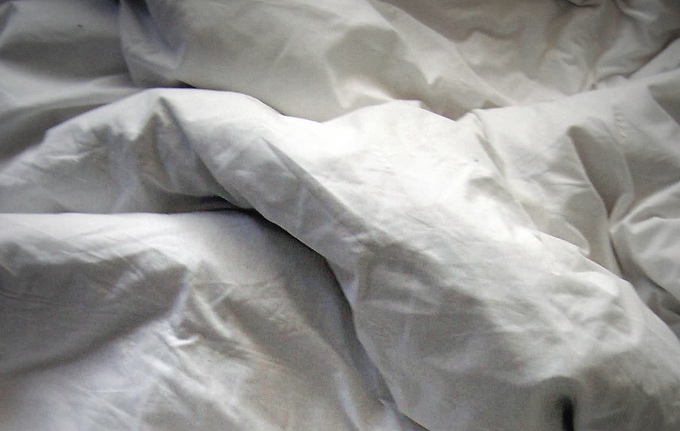
Sleep is the most neglected state of being in American life. We think we can cut corners, push ourselves to the limit. To some degree, it has even become subject to the calculus of good and evil, with virtue ascribed to making do with less. This is nonsense. Nothing else except breathing and drinking water is as immediately vital to our well being as sleep. And there is an under-acknowledged connection between sleeping too little and gaining weight.
Proust began his masterpiece with a very slow and agonized wind down to z’s. He gave it a lot of thought and comment, as we French will do with most things. Now, while we don’t wish to encourage such performance anxiety, sleep must be done well. There is an art to this too. But as with other pleasures—and good sleep is one of the most basic—respect for the individual is paramount, as no two of us have the same requirements or patterns.
When we lived and labored according to the sun and the seasons, getting to sleep was easier, and our internal clock (circadian rhythms) reset itself reliably as the days got longer or shorter. Now each of us follows her own clock, often getting by with too little. At the same time there is an insomnia epidemic, with a corresponding wave of pharmaceutical remedy.
A Snack Doesn’t Equal a Nap
We are regularly warned of the mounting national “sleep debt” that research has demonstrated increases insulin resistance and triggers the release of stress-response hormones. It’s a vicious cycle since the body’s responses to sleep deprivation can make it only harder for us to sleep. Sleeplessness also makes us listless, which encourages us to overeat, food being the most obvious other way to achieve reinvigoration. When we feel this way we tend to lean on high-energy foods. And of course, lack of sleep interferes with the mental mechanisms by which we register pleasure. Optimal experience depends on sensory alertness. Consider a good night’s sleep vital to proper eating and balance.
Pave the Way to Your Bed
There are rituals that can promote a good night’s rest. To me, the tisane, or herbal tea, is essential. Water in any form can help, because dehydration always undermines the quality of our sleep time. For this reason, alcohol just before sleep is not good, and in small amounts is known to have the “paradoxical effect” of being a stimulant. (We French only seem to have a monopoly on paradox.)
As to setting, look around your bedroom: you don’t need to be a Feng Shui master to make improvements. Gentle lighting that promotes somnolence can help greatly. In Provence in summer, the bloom of lavender delivers a natural sleep aid into the night air. I’m always reminded of the splendid lavender fields of the Abbaye de Sénanque, near Gordes in the Vaucluse. The smell is wonderfully soporific and you can enjoy it in the freshly picked variety or by burning a bit of the plant’s essential oil. Louis XIV demanded the presence of all his worthies in his bed chamber not only for his coucher (going to bed ritual) but also for his lever (rising). You don’t need an audience to practice routines that tell your body bed time approaches.
Try to go to bed relaxed. We French like eating late, but don’t go to bed without having digested dinner. This may mean eating lightly at night (when carbohydrates are a good idea) with a glass of wine (a relaxant if used in moderation and with food). Better to have a yogurt snack just before bed to neutralize the occasional coup de faim than to eat too late or overeat early and fall asleep on a full stomach. Controlled breathing is another way to prepare your body. The yawning exercise is very useful here. Don’t neglect room temperature, either; even in winter this should be cool, 68° F at maximum. Except in blizzard conditions, do open your window a crack for some fresh air.
Overdosing is a Risk, Too
It’s important to catch the train when it’s in the station. If you ignore sleepiness signals you may need another two hours to feel sleepy again. Sleeping and rising at the same time each day is a good idea. Sleeping until noon on Sundays to catch up is based on a misconception. Food may be organized on the weekly calendar but not sleep. Better to try napping ten to twenty minutes during the day (avoid the long siesta of two hours, as it will interfere with your sleep rhythm). Finally remember moderation. While need can vary by individual, less than six hours or more than eight may be unhealthy. Though few of us sleep too much, it is possible to have too much of even this good thing. Your body will sleep less efficiently if you give it too much time au lit.
